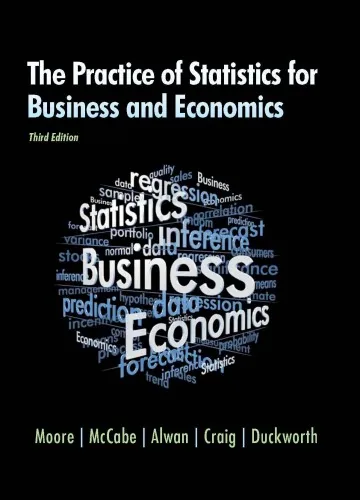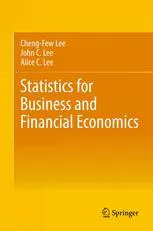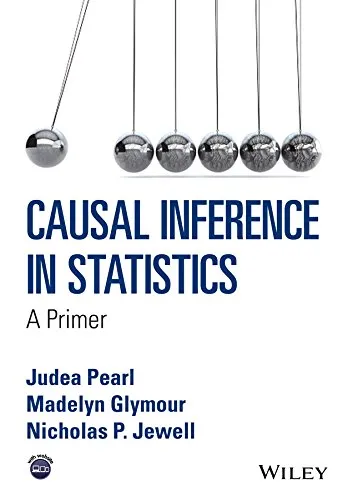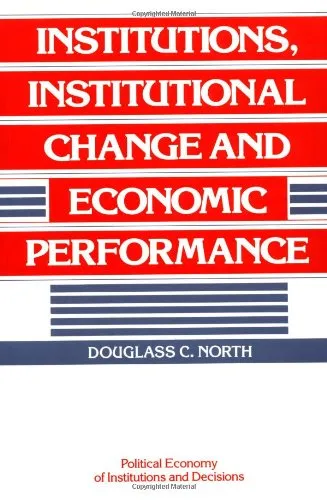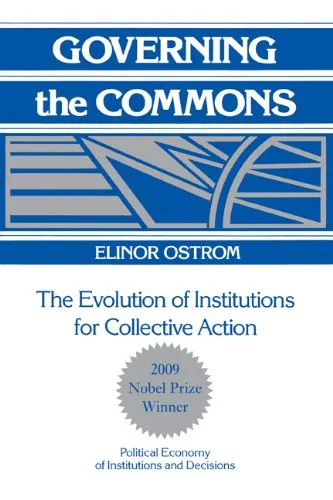The Dignity of Commerce: Markets and the Moral Foundations of Contract Law
4.5
بر اساس نظر کاربران

شما میتونید سوالاتتون در باره کتاب رو از هوش مصنوعیش بعد از ورود بپرسید
هر دانلود یا پرسش از هوش مصنوعی 2 امتیاز لازم دارد، برای بدست آوردن امتیاز رایگان، به صفحه ی راهنمای امتیازات سر بزنید و یک سری کار ارزشمند انجام بدینکتاب های مرتبط:
معرفی کتاب «The Dignity of Commerce: Markets and the Moral Foundations of Contract Law»
کتاب «The Dignity of Commerce: Markets and the Moral Foundations of Contract Law»، نوشتهٔ ناتان بی. اومن، یک اثر تأثیرگذار و ژرف در بررسی رابطه بین بازارها، اخلاق، و مبانی حقوق قراردادها است. این کتاب تلاش میکند تا قواعد قراردادها را نهتنها از منظر ابزار اقتصادی، بلکه از چشماندازی انسانی و اخلاقی تحلیل کند و نشان دهد که چگونه تجارت و بازارها به عنوان مکانیسمی برای ایجاد همکاری، به قدرتمندتر شدن روابط انسانی و تقویت اصول اخلاقی کمک میکنند.
خلاصهای از کتاب
کتاب «The Dignity of Commerce»، با تأکید بر کرامت انسانی موجود در سیستمهای بازار آزاد، بررسی میکند که چرا قراردادها فقط ابزار تسهیلگر دادوستد اقتصادی نیستند، بلکه به نوعی پایه و اساسی برای تقویت مبانی اخلاقی در جامعه به شمار میآیند. نویسنده با اتکا به رویکردهای فلسفی و حقوقی، توضیح میدهد که چگونه بازارها محیطی برای اعتمادهای متقابل ایجاد میکنند و همکاری عمیقتری میان افراد فراهم میآورند.
از دیدگاه اومن، قراردادها صرفاً توافقاتی قانونی نیستند؛ بلکه ابزارهایی هستند که نه تنها سودمندی فردی را ممکن میکنند، بلکه اصول اخلاقی مانند احترام به دیگران، انصاف، و همکاری اجتماعی را نیز تقویت میکنند. او همچنین به بررسی نقدهای رایج بر بازارها میپردازد و بهطور هوشمندانهای نشان میدهد که بازارها اغلب به اشتباه ابزارهایی غیرانسانی و بیش از حد مادی تلقی میشوند.
یادگیریهای کلیدی
- بازارها نه تنها ابزاری برای دادوستد اقتصادی بلکه محل آزمون و توسعهی اصول اخلاقی هستند.
- حقوق قراردادها، عمیقاً با اخلاق فردی و اجتماعی در ارتباط است و قابلیت ایجاد اعتماد و احترام را در جامعه دارد.
- رابطهای ذاتی میان همکاری اقتصادی و ارزشهای اخلاقی وجود دارد که نمیتوان آن را نادیده گرفت.
- انتقادهای مرسوم از بازارها غالباً تصویری ناقص و نادرست از نقش آنها در توسعهٔ اجتماعی ارائه میدهند.
گزیدهای از جملات معروف کتاب
"Markets can be seen not as places where individuals satisfy selfish desires, but as arenas where moral values such as trust and fairness come to life."
"Contracts are less about binding promises than they are about fostering relationships."
چرا این کتاب مهم است؟
«The Dignity of Commerce» یکی از آثاری است که میتواند پل میان اقتصاد و اخلاق باشد و درک ما از نقش حقوق قراردادها در جامعه مدرن را متحول کند. این کتاب توجه ویژهای به رابطهٔ میان ارزشهای اخلاقی و سیستمهای اقتصادی دارد و همین امر آن را به منبعی ضروری برای دانشجویان، اساتید، و سیاستگذاران تبدیل میکند.
ناتان بی. اومن با رویکرد بینرشتهای خود، این کتاب را به اثری تاثیرگذار تبدیل کرده که پرسشهای مهمی را در مورد کارکرد بازارها و قوانین مرتبط با آنها مطرح میکند. چرا بازارها نه تنها نیازهای اقتصادی ما را برطرف میکنند بلکه میتوانند به عنوان ابزاری برای ایجاد جامعهای عادلتر و اخلاقیتر عمل کنند؟ این پرسشی است که نویسنده در طول کتاب پاسخ میدهد.
Introduction to "The Dignity of Commerce: Markets and the Moral Foundations of Contract Law"
"The Dignity of Commerce: Markets and the Moral Foundations of Contract Law" by Nathan B. Oman is a thought-provoking exploration of the ethical underpinnings of markets and their relationship with contract law. The book challenges readers to consider how commerce not only governs economic transactions but also facilitates dignity, cooperation, and moral order in society. Far from being a cold and impersonal mechanism, markets, Oman argues, possess inherent moral qualities that create space for individuals to engage in associations that promote mutual respect and social cohesion. Through this lens, he offers a refreshing perspective on the legal frameworks governing contracts, presenting them as vital tools to sustain the moral and ethical dimensions of commerce.
This book is not just aimed at legal professionals or academics—it appeals to anyone interested in understanding how economics, morality, and law intersect. Whether you are a lawyer, economist, philosopher, or simply a curious reader, Oman provides comprehensive answers to questions like: Why do we need contract law? What ethical justification can we provide for enforcing agreements? And ultimately, why should markets be seen as dignified institutions within a society?
Detailed Summary of the Book
In "The Dignity of Commerce," Nathan B. Oman makes a compelling case for understanding markets as morally significant structures within society. The book takes a fresh approach by arguing that markets are not just venues for profit-making but also realms where individuals recognize and promote human dignity. Oman examines the deep connection between markets and the moral fabric of communities, positioning contracts as the legal bedrock that enables these interactions to thrive.
One of the book's primary arguments is that while markets can sometimes fail and lead to injustices, they are overwhelmingly forces of moral good. By facilitating exchange, fostering cooperation among strangers, and offering opportunities to exercise personal autonomy, markets empower individuals and create mutual respect. The book systematically challenges the traditional debates about contract law being grounded solely in notions of efficiency or corrective justice. Instead, Oman advocates for a pluralistic justification of contract law, rooted in the moral benefits of commerce itself.
Divided into carefully structured chapters, the book delves into the philosophical roots of free markets, the socio-legal implications of contractual enforcement, and the role of ethical pluralism. Oman masterfully weaves together legal theory, philosophy, and economic insights to demonstrate that protecting the rules of contracts extends beyond mere economic expediency—it is about upholding human dignity through fair and voluntary exchanges.
Key Takeaways
- Markets are not morally neutral. They promote mutual respect, human dignity, and cooperation among individuals.
- Contract law should not be justified only by efficiency or corrective justice. A pluralistic approach enriched with moral philosophy provides a more robust justification.
- Enforcing contracts protects the moral significance of commerce by fostering trust, facilitating economic relationships, and upholding human autonomy.
- The legal framework underpinning contractual obligations is vital not only for economic prosperity but also for sustaining a cooperative and cohesive society.
- The book draws attention to the ethical dimensions of economic interactions, encouraging readers to view markets as more than transactional systems.
Famous Quotes from the Book
"Markets are not merely mechanisms for economic exchange but are, fundamentally, institutions of moral cooperation."
"Contract law exists not to coerce compliance but to protect and enable the moral and social goods that flow from commerce."
"The dignity of commerce is that it allows strangers to trust one another—building bridges of cooperation where none existed."
Why This Book Matters
The importance of "The Dignity of Commerce" lies in its ability to bridge the often-disconnected domains of economics, morality, and law. In a world increasingly skeptical of markets and their societal implications, Nathan B. Oman provides a counter-narrative that highlights their role in fostering human dignity, trust, and cooperation. By re-centering the debate around the moral foundations of contract law, the book offers a rigorous and persuasive argument for seeing commerce as more than just a mechanism for profit generation—it is a framework that upholds the ethical and social bonds of society.
Moreover, the book brings much-needed philosophical depth to contemporary discussions of contracts and market regulation. It challenges the dominant narratives of market pessimism while acknowledging the potential shortcomings of unregulated commerce. This dual perspective makes it a crucial read for anyone interested in rethinking the relationship between law, ethics, and economics.
Ultimately, "The Dignity of Commerce" is a powerful reminder that markets are not merely tools for wealth creation—they are moral spaces where individuals engage with one another on equal footing, share mutual respect, and build a foundation for enduring social cooperation.
دانلود رایگان مستقیم
شما میتونید سوالاتتون در باره کتاب رو از هوش مصنوعیش بعد از ورود بپرسید
دسترسی به کتابها از طریق پلتفرمهای قانونی و کتابخانههای عمومی نه تنها از حقوق نویسندگان و ناشران حمایت میکند، بلکه به پایداری فرهنگ کتابخوانی نیز کمک میرساند. پیش از دانلود، لحظهای به بررسی این گزینهها فکر کنید.
این کتاب رو در پلتفرم های دیگه ببینید
WorldCat به شما کمک میکنه تا کتاب ها رو در کتابخانه های سراسر دنیا پیدا کنید
امتیازها، نظرات تخصصی و صحبت ها درباره کتاب را در Goodreads ببینید
کتابهای کمیاب یا دست دوم را در AbeBooks پیدا کنید و بخرید
1346
بازدید4.5
امتیاز0
نظر98%
رضایتنظرات:
4.5
بر اساس 0 نظر کاربران
Questions & Answers
Ask questions about this book or help others by answering
No questions yet. Be the first to ask!


